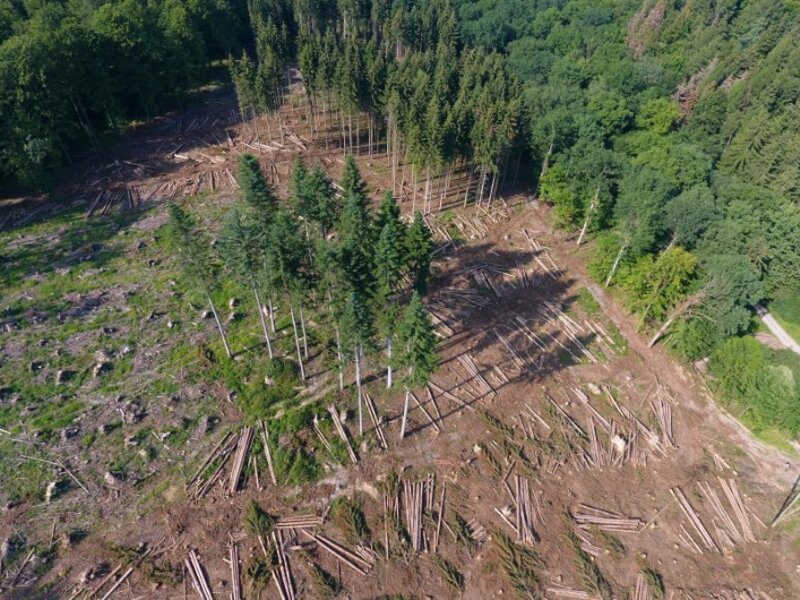The European Commission has not done enough to protect the state of EU forests and to improve their biodiversity, a recent report by the European Court of Auditors (ECA) concluded.
In part, it found that just a small part of the EU's agricultural budget was set aside for forest management, while most of the funding goes towards conservation rather than restoration, which in turn has an impact on how forests can help when it comes to dealing with extreme weather.
"Forests can act as important carbon sinks and help us reduce the effects of climate change, such as forest fires, storms, droughts, and decreasing biodiversity, but only if they are in a good state," said Samo Jereb, the ECA member responsible for the report.
ECA, the EU institution that audits its accounts, budget implementation and performance, highlighted that the area covered by forests on the continent has grown in the last 30 years, but that based on its 2014-2020 forestry strategy, the Commission could have taken stronger action to protect EU forests within its competencies.
The ECA found that the lack of funding plays a big role in this: Less than 1% of the Common Agricultural Policy (CAP) budget is allocated to forest management, much less than the funding earmarked for agriculture, even though the area of land is covered by forests and the area used for agriculture are almost the same.
"It is the responsibility of the European Commission and the Member States to step up actions to ensure resilient forests," Jereb stated.
Increase biodiversity and implementing regulations
The report stated that, for one, the EU's forestry management should focus more strongly on biodiversity and climate change, and the quality of the conservation measures that are taken.
"Despite 85% of the assessments of the protected habitats indicating bad or poor conservation status, most conservation measures aim only to maintain rather than to restore status," the report stated.
Meanwhile, the auditors found that monoculture was too common in some afforestation measures, stressing that "a combination of species would be better for biodiversity and for resistance to storms, droughts and pests."
Related News
- EU auditors: “Support to agriculture not aligned with sustainable water use”
- 'Urgent' change in forest management needed to avoid floods
According to the report's findings, there are key EU policies that address biodiversity and climate change in EU forests, but their impact is limited.
The auditors stressed that both the Commission and the Member States should be taking more action to enforce the EU Timber Regulation that prohibits the trading of illegally logged timber and derived products, and that it should more efficiently use tools that can aid in the monitoring of large areas, including earth observation data, maps and geotagged photos.
Under both the UN Convention on Biological Diversity and the 2030 Agenda for Sustainable Development which the EU endorsed, it agreed to respect a number of targets directly related to biodiversity in forests, however, various reports have found that the condition of European forests is generally deteriorating.

